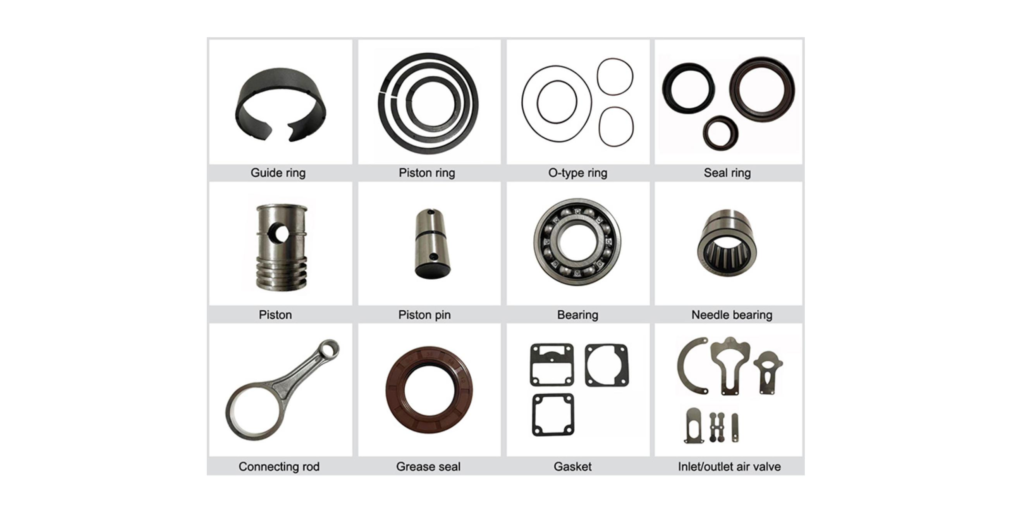Does an oxygen concentrator have an Oil-Free Air Compressor?
An oxygen concentrator is a medical device that provides supplemental or extra oxygen to a patient with breathing issues. The device consists of a compressor, sieve bed filter, oxygen tank, pressure valve, and a nasal cannula (or oxygen mask). An air compressor is a key part of the pressure swing adsorption process oxygen concentrators use to convert ambient air into oxygen.
How do Oil-Free Air Compressors Work?
Oil-free air compressors either have no mechanical contact inside the compression chamber or use alternate materials to protect the mechanism without lubrication.
Most oil-free compressors utilize other materials like water or a Teflon coating to keep the mechanism running smoothly. Because the lubrication of bearings and gears is all external to the compression chamber, proper sealing prevents any oil from contaminating the compressed air. The result is a 100% oil-free air supply. Some oil-free designs have even removed metal-to-metal contact within the compression chamber, eliminating the need for oil-based and synthetic lubrication altogether.
What are the Oil-Free Air Compressor accessories?

How Long Do Oil-Less Air Compressors Last?
Generally, an oil-free compressor will not last as long as an oil-lubricated model because its pre-lubrication will gradually wear away and degrade over time. Oil-free compressors also tend to use a universal motor, which won’t last as long as an induction motor.
The Teflon coating often used to lubricate the internal cylinder simply wears off over time, and this wear can increase when an oil-less compressor is used in extreme temperatures or for long durations. If you’re vigilant, you can have an oil-less compressor last for years, but this requires more time and money (typically) than an oil-lubricated air compressor.
If you want to extend how long your oil-less compressor will last, good maintenance is your best friend. Air compressors have a lot of moving parts that can cause significant wear, so ensure that you’re looking inside at least once a month. Check the permanently lubricated elements, such as the cylinder’s Teflon coating and either Teflon or carbon ring seals.
Heat Troubles
Part of how oil-less air compressors work includes a significant generation of heat. The more stress they’re put under or the higher the pressure you’re going for, the more likely it is that your air compressor will grind against itself or generate enough heat to burn out and/or warp components.
Oil-free air compressors tend to have a smaller clearance than their oil-injected counterparts, which means there may be less room for them to intake and move enough air to circulate and cool properly. To avoid this, you need to run the compressor only at its manufactured specifications and ensure that you’re providing plenty of space surrounding the unit to keep its exhaust and intake lines free from heat-causing dust and dirt.




